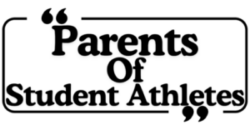By Pat Brown, MBA – Former Student-Athlete
For many student-athletes, the transition from sports to a professional career can feel like stepping onto a new playing field with different rules. After years of structured schedules, intense training, and a deep-rooted identity in athletics, the shift to the corporate world or entrepreneurial ventures can be overwhelming. However, universities offer robust career services to help student-athletes navigate this transition successfully, and parents can play a crucial role in ensuring their children take full advantage of these resources.
1. Understanding University Career Services
Most universities provide career services designed to support students as they explore professional opportunities. These services often include resume building, interview preparation, career fairs, networking events, and internship placement. Parents should encourage their student-athlete to schedule meetings with career advisors early and often to stay proactive in career planning.
2. Encouraging Career Exploration
University career centers offer a wealth of resources that help students explore different industries and career paths. Parents can support their child by encouraging them to take career assessments, attend job fairs, and participate in informational interviews with professionals in their field of interest. Helping student-athletes see how their skills transfer to the workforce is key to a successful transition.
3. Utilizing Alumni and Athletic Networks
Many universities have extensive alumni networks that include former student-athletes who have successfully transitioned into professional careers. Parents can encourage their children to reach out to alumni for mentorship, job-shadowing opportunities, and networking connections. Athletic departments also have dedicated staff who assist student-athletes with post-graduation career planning.
4. Preparing for Life After Sports
Career services can provide guidance on resume writing, LinkedIn profile development, and interview techniques—essential skills for entering the workforce. Parents should remind their children to highlight their athletic experiences, such as leadership, teamwork, and perseverance, which are highly valued by employers. Mock interviews and career workshops offered by the university can further help students gain confidence in job applications.
5. Finding Internship and Job Opportunities
Universities often have exclusive internship programs and job boards specifically for students. Many employers actively seek student-athletes for their discipline and work ethic. Parents can encourage their children to apply for internships early in their college career to gain experience and build a competitive resume.
6. Continuing Education and Skill Development
Career centers frequently provide guidance on graduate school options, professional certifications, and skill development programs. Parents can help by researching continuing education opportunities that align with their child’s career interests and long-term goals.
7. Embracing Career Transitions
Leaving behind an identity as an athlete can be emotionally challenging. Career services often offer workshops and counseling to help student-athletes embrace their new professional identity. Parents play a critical role in providing emotional support and reinforcing that their child’s skills and dedication will lead to success in any field.
8. Seeking Guidance and Support
University career services are there to help, but it’s up to students to take initiative. Parents should remind their children to take full advantage of these resources and stay engaged with career planning throughout their college years. Encouraging them to ask for help, attend career events, and build professional relationships will set them up for success.
Conclusion
The transition from athletics to a professional career can be daunting, but universities provide extensive career services to help students navigate this journey. Parents can play a key role by encouraging their children to engage with career resources, explore career paths, and build professional networks. By staying proactive and informed, student-athletes can leverage their unique skills and experiences to secure meaningful and fulfilling careers beyond sports.
For more resources and guidance on navigating life after sports, visit www.parentsofstudentathletes.com.




